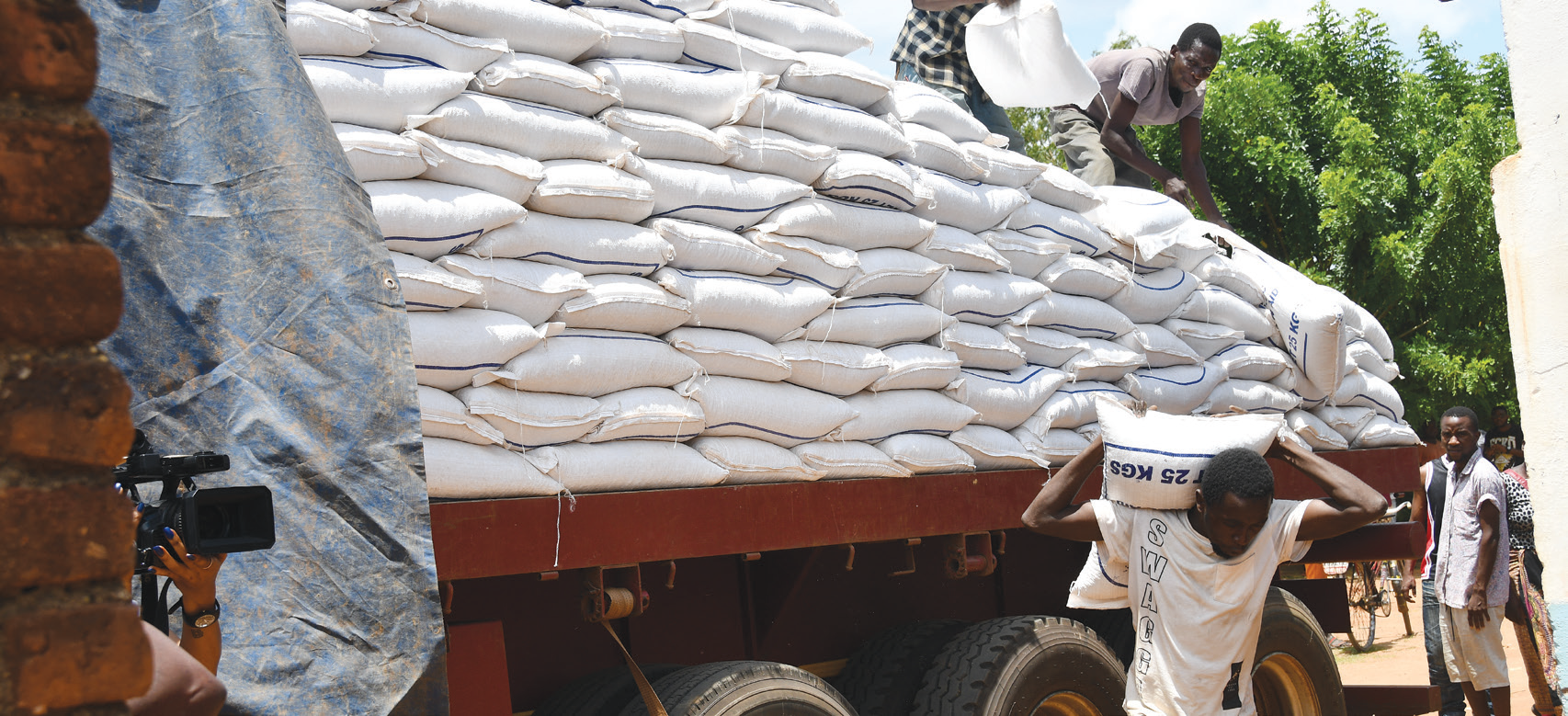NFRA, Admarc differ on relief maize
Some government and NFRA officials sent to collect maize in Admarc depots to distribute to the needy have hit a blank wall in some areas. They now believe the grain was used for collateral for loans the parastatal secured with commercial banks.
Admarc general manager Rhino Chiphiko confirmed that they used some maize to get loans, but dismissed assertions that the maize under collateral belongs to National Food Reserve Agency (NFRA).

The team, comprising officials from NFRA and the Department of Disaster and Management Affairs (Dodma), wants Admarc to release 29 168 metric tonnes of maize it bought for NFRA so that it can be distributed to 1.7 million people facing hunger in the country and, lately, those affected by the Tropical Storm Ana.
Government gave K12 billion to Admarc to buy maize for the country’s Strategic Grain Reserves (SGRs) despite strong opposition from NFRA which believes it is mandated to purchase grain for its reserves.
Admarc could not deliver the maize to NFRA, claiming it was safely kept in its depots across the country.
But a highly placed source at NFRA, who was part of the teams visiting Admarc depots, said they could not draw maize in some depots in the Southern and Central regions as it was in the hands of commercial banks.
“We managed to draw some maize in some depots, but we were turned away in others, saying the maize was under collateral. The maize drawn is less than the required 29 000 metric tonnes,” said the source.
In response, Chiphiko said the maize under commercial bank collateral security is Admarc’s and cannot be touched.
“The maize these teams are going around to draw is NFRA’s. They may have visited depots where we have Admarc maize, not the maize we bought for NFRA. What they are supposed to do is to collect relief maize kept for the SGRs not Admarc’s,” he said.
Chiphiko said NFRA should have indicated depots where they failed to draw the maize.
But NFRA board chair Denis Kalekeni said he was yet to get a report on the matter.
He said: “All what is being collected will be reconciled; you know this maize was supposed to be transferred to us but an agreement was made later that it should remain in Admarc depots.
“We will receive a comprehensive report later. Currently, we are conducting an exercise to draw 29 000 metric tonnes of relief maize. Where there are challenges; we will have all that in the report.”
On her part, NFRA acting chief executive officer Brenda Masanza Kayongo in a response to a questionnaire on Thursday said in the 2021/22 fiscal year, Admarc procured 65 675 metric tonnes for the SGRs.
“Out of this, 32 654 metric tonnes is expected to be drawn from Admarc depots in an ongoing Dodma response programme. The balance, 33 021 metric tonnes, is to be transferred to NFRA depots,” Kayongo said.
The NFRA boss claimed as of February 22, this year, 20 281 metric tonnes had been collected.
“As NFRA, we are recording the maize that Dodma has collected and at the end of the exercise, we shall report to our principals the quantity collected and the expected tonnage to be transferred to NFRA depots by Admarc,” Kayongo said.
Government was already distributing maize to food insecure households based on a projection by the Malawi Vulnerability Assessment Committee (Mvac) report which estimated that 1.7 million people (339 000 households) in all 28 districts and four cities of the country were food insecure during the 2021/22 lean season.
The recent devastating effects of Tropical Storm Ana, which swept crops and animals, especially in the Lower Shire, worsened the food crisis situation in the country. President Lazarus Chakwera declared Malawi a State of disaster.
Dodma spokesperson Chipiliro Khamula said government instructed NFRA to release 29 168 metric tonnes and they were still collecting the maize in some Admarc depots, but could not readily state how many tonnes have been collected so far.
Meanwhile, Chiphiko on Tuesday expressed his frustrations when he met members of Parliamentary Committee on Agriculture and Food Security, and Parliamentary Committee on Climate Change in Lilongwe that commercial banks are holding on to its maize because of loans government forces it to obtain, argue this situation affects its operations.
He disclosed to the parliamentarians that last year, Admarc paid K621 million in collateral costs to collateral companies.
In January this year, Chiphiko told the Public Accounts Committee that its debt with commercial banks hovered around K58 billion.





